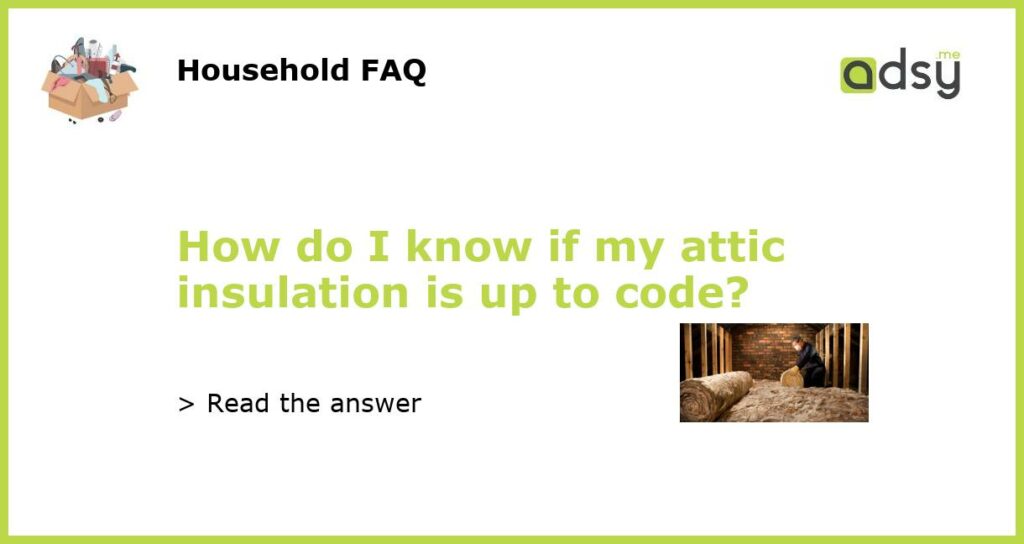Signs of inadequate insulation
One of the main indicators that your attic insulation may not be up to code is the presence of uneven temperatures in different parts of your home. If certain rooms feel too warm in summer or too cold in winter, it could be a sign that the insulation in your attic is not effectively preventing the transfer of heat or cold air into your living spaces. Similarly, if you notice a significant increase in your energy bills without any corresponding change in your energy usage, it could be due to poor attic insulation.
Another way to determine if your attic insulation is up to code is by checking for signs of moisture or water damage. Inadequate insulation can lead to condensation buildup in your attic, which can eventually cause water damage and the growth of mold or mildew. If you notice any water stains, damp spots, or a musty odor in your attic, it is a clear indication that your insulation is not properly doing its job.
Measuring insulation thickness
In order to ensure that your attic insulation meets the required code standards, you can measure its thickness. The appropriate insulation thickness varies depending on your location and the specific building codes in your area. The most common way to measure insulation thickness is by using a ruler or tape measure. Simply lift a section of the insulation and measure from the top surface to the bottom surface. The measurement should typically be around the recommended thickness for your area.
Additionally, you can also consult the manufacturer’s specifications for the insulation material you have installed. These specifications usually provide information on the optimal thickness and coverage for the insulation to properly meet code standards. If your insulation thickness falls short of these recommendations, it may be necessary to add more insulation to bring it up to code.
Hiring a professional inspection
When in doubt, it is always best to consult a professional to determine if your attic insulation is up to code. A professional inspector will have the knowledge and expertise to assess the condition and effectiveness of your insulation. They will be able to identify any potential issues or areas of improvement and provide recommendations for bringing your insulation up to code.
When hiring a professional for an inspection, be sure to choose a reputable and certified contractor who specializes in insulation and energy efficiency. They should be familiar with local building codes and regulations and able to provide accurate assessments and recommendations based on your specific situation.
Benefits of up-to-code insulation
Ensuring that your attic insulation is up to code offers several benefits. First and foremost, it helps to improve the overall comfort of your home by reducing temperature fluctuations and maintaining a more consistent indoor climate. Adequate insulation also helps to reduce energy consumption and lower utility bills, as it prevents the escape of heated or cooled air.
Additionally, proper insulation contributes to a healthier living environment by preventing moisture buildup and the growth of mold or mildew. It also helps to reduce noise transmission from outside, making your home quieter and more peaceful.
If you suspect that your attic insulation may not be up to code, it is worth investigating further. Look for signs of inadequate insulation such as uneven temperatures and increased energy bills. Measure the thickness of your insulation and consult the manufacturer’s specifications to ensure it meets the recommended standards. Consider hiring a professional inspector to provide a thorough assessment and recommendations for bringing your insulation up to code. Remember, having up-to-code insulation not only improves the comfort and energy efficiency of your home, but also contributes to a healthier living environment.

